 First edition | |
| Author | May Sinclair |
|---|---|
| Country | United Kingdom |
| Genre | Fiction |
| Publisher | Macmillan |
Publication date | 1922 |
| Media type | Print (Paperback) |
| Pages | 376 pp |
The Life and Death of Harriett Frean' is a 1922 novel by English author May Sinclair.
 First edition | |
| Author | May Sinclair |
|---|---|
| Country | United Kingdom |
| Genre | Fiction |
| Publisher | Macmillan |
Publication date | 1922 |
| Media type | Print (Paperback) |
| Pages | 376 pp |
The Life and Death of Harriett Frean' is a 1922 novel by English author May Sinclair.
Harriett Frean is a woman so afraid of life that she will eventually talk herself out of living it. The novel follows Harriet as she is raised to be the ideal Victorian woman. Harriett is proud of her self-sacrifice (which she believes is the highest love of all) but when she falls in love with her best friend's fiance she is forced to question everything she thought she knew. Having decided not to follow her heart Harriett spends the rest of her life trying to convince herself that she has done the right thing. [1] Described as a "small, perfect gem of a book" by author Jonathan Coe. [2]
It was first published in 1922; The Life and Death of Harriett Frean is the only May Sinclair novel currently in print. It was republished by Virago in 1980, by Penguin Books in 1986 and has been reprinted many times. It was also adapted into a BBC television show in 1986.

Florence Margaret Smith, known as Stevie Smith, was an English poet and novelist. She won the Cholmondeley Award and was awarded the Queen's Gold Medal for Poetry. A play, Stevie by Hugh Whitemore, based on her life, was adapted into a film starring Glenda Jackson.
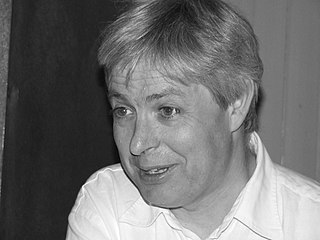
Jonathan Coe is an English novelist and writer. His work has an underlying preoccupation with political issues, although this serious engagement is often expressed comically in the form of satire. For example, What a Carve Up! (1994) reworks the plot of an old 1960s spoof horror film of the same name. It is set within the "carve up" of the UK's resources that was carried out by Margaret Thatcher's Conservative governments of the 1980s.

Kathleen Mansfield Murry was a New Zealand writer and critic who was an important figure in the modernist movement. Her works are celebrated across the world, and have been published in 25 languages.

Vera Mary Brittain was an English Voluntary Aid Detachment (VAD) nurse, writer, feminist, socialist and pacifist. Her best-selling 1933 memoir Testament of Youth recounted her experiences during the First World War and the beginning of her journey towards pacifism.
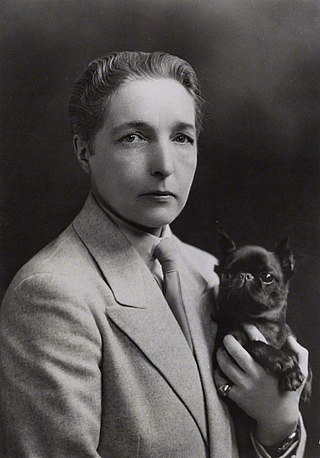
Marguerite Antonia Radclyffe Hall was an English poet and author, best known for the novel The Well of Loneliness, a groundbreaking work in lesbian literature. In adulthood, Hall often went by the name John, rather than Marguerite.
Dorothy Miller Richardson was a British author and journalist. Author of Pilgrimage, a sequence of 13 semi-autobiographical novels published between 1915 and 1967—though Richardson saw them as chapters of one work—she was one of the earliest modernist novelists to use stream of consciousness as a narrative technique. Richardson also emphasises in Pilgrimage the importance and distinct nature of female experiences. The title Pilgrimage alludes not only to "the journey of the artist ... to self-realisation but, more practically, to the discovery of a unique creative form and expression".
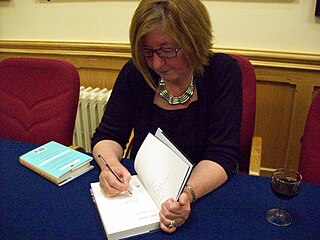
Patricia Mary W. Barker, is a British writer and novelist. She has won many awards for her fiction, which centres on themes of memory, trauma, survival and recovery. Her work is described as direct, blunt and plainspoken. In 2012, The Observer named the Regeneration Trilogy as one of "The 10 best historical novels".

Frances Milton Trollope, also known as Fanny Trollope, was an English novelist who wrote as Mrs. Trollope or Mrs. Frances Trollope. Her book, Domestic Manners of the Americans (1832), observations from a trip to the United States, is the best known.
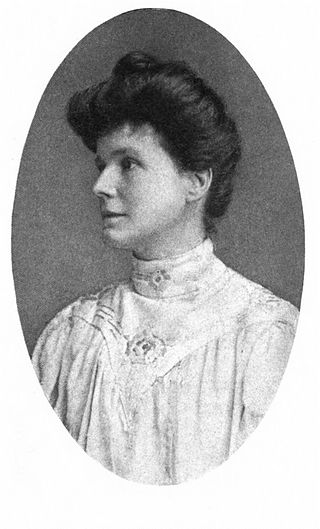
May Sinclair was the pseudonym of Mary Amelia St. Clair, a popular British writer who wrote about two dozen novels, short stories and poetry. She was an active suffragist, and member of the Woman Writers' Suffrage League. She once dressed up as a demure, rebel Jane Austen for a suffrage fundraising event. Sinclair was also a significant critic in the area of modernist poetry and prose, and she is attributed with first using the term 'stream of consciousness' in a literary context, when reviewing the first volumes of Dorothy Richardson's novel sequence Pilgrimage (1915–1967), in The Egoist, April 1918.

No Fond Return of Love is a novel by Barbara Pym, first published in 1961.
Dame Carmen Thérèse Callil, was an Australian publisher, writer and critic who spent most of her career in the United Kingdom. She founded Virago Press in 1973 and received the Benson Medal from the Royal Society of Literature in 2017. She has been described by Gail Rebuck as "the most extraordinary publisher of her generation".
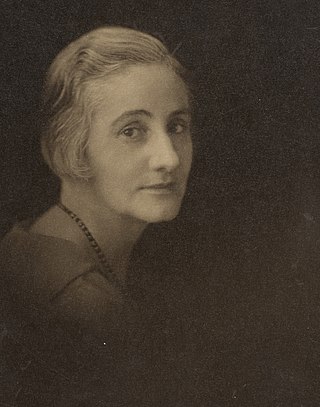
Katharine Susannah Prichard was an Australian author and co-founding member of the Communist Party of Australia.
Molly Keane, née Mary Nesta Skrine, and who also wrote as M. J. Farrell, was an Irish novelist and playwright.
Antonia White was a British writer and translator, known primarily for Frost in May, a semi-autobiographical novel set in a convent school. It was the first book reissued by Virago Press in 1978, as part of their Modern Classics series of books by previously neglected women authors.

Both Sides of Time (1995) is a fiction book and the first of the Time Travelers Quartet series by Caroline B. Cooney. It was first published on July 1, 1995. The hardcover book has 224 pages and was published on October 9, 2001, by Delacorte Books for Young Readers. In Both Sides of Time, Caroline B. Cooney gives a realistic view of the struggles women had faced in the 19th century and how far they have come in the 20th century. The dialogue of this novel contains a mixture of the English language from the use of speech in the Victorian era to the terminologies and style of talk in modern English. The recommended age for this book is from ages 12 to 14.
Harriett Sarah Gilbert is an English writer, academic and broadcaster, particularly of arts and book programmes on the BBC World Service. She is the daughter of the writer Michael Gilbert. Besides World Book Club on the World Service, she also presents A Good Read on BBC Radio 4. Before the programme was cancelled, she also presented the BBC World Service programme The Strand.

The Enchanted April is a 1922 novel by British writer Elizabeth von Arnim. The work was inspired by a month-long holiday to the Italian Riviera, probably the most widely read and perhaps the lightest and most ebullient of her novels.

Middle England is a 2018 novel by Jonathan Coe. It is the third novel in a trilogy, following The Rotters’ Club (2001) and The Closed Circle (2004). The novel explores the experiences of characters from those earlier novels against the backdrop of the major events taking place before, during and after the Brexit referendum.

The Adventures of Rivella (1714) is the last novel written by eighteenth century English author Delarivier Manley. The work is a semi-autobiographical account of Manley's life seen through the fictional character of Rivella. Delarivier Manley's final novel, which was later edited and published by Edmund Curll, is centred around her life before, during, and after her treacherous marriage. The events and incidents incurred by the fictional character Rivella are narrated to the reader through a conversational dialogue between two male protagonists, being Sir Lovemore and Sir D'Aumont. The narrative tells that the young chevalier D'Aumont has left France in search of sexual partnership with Rivella and instead finds the rejected lover, Sir Charles Lovemore who does not assist the Frenchman in arranging contact with Rivella, but tells her life story instead, both as it relates in public gossip and her personal writings.
Arnold Waterlow: a Life is a 1924 novel by author May Sinclair. Like Sinclair's earlier novel The Life and Death of Harriet Frean, Arnold Waterlow: a Life chronologically details the life of a single character.